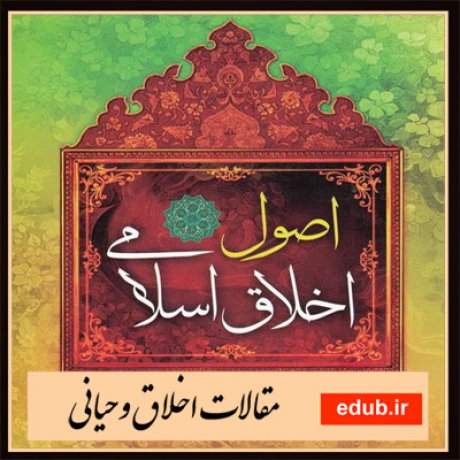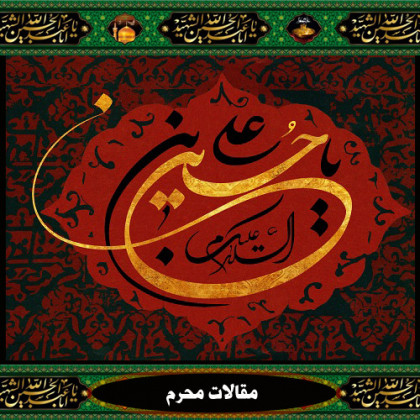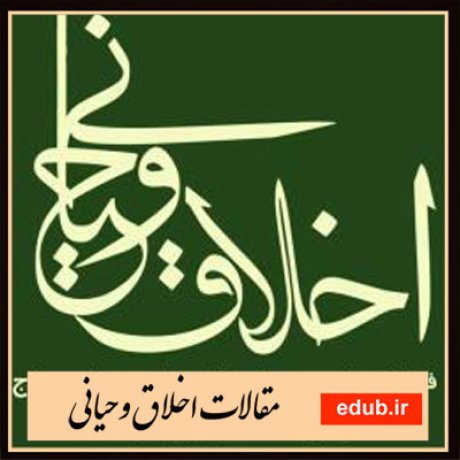مقاله اخلاق از دیدگاه اشاعره و معتزله

مقاله علمی و پژوهشی " اخلاق از دیدگاه اشاعره و معتزله" مقاله ای است در 31 صفحه و با 45 فهرست منبع که در مجلات معتبر علمی و پژوهشی با رویکرد اخلاق وحیانی منتشر شده است
در این مقاله علمی و پژوهشی به مباحث اخلاق؛ اشاعره؛ معتزله؛ حسن و قبح؛ ذاتی و عقلی؛ الاهی و شرعی پرداخته شده است
چکیده مقاله
در علم اخلاق، از حسن و قبح سخن میرود و اخلاق بر اخلاق از دیدگاه اشاعره و معتزله مدار حسن و قبح میچرخد، اعم از آنکه در حوزۀ عقاید یا اوصاف نفسانی و یا افعال باشد. نگارنده در مقالۀ حاضر، اخلاق را از دیدگاه دو مکتب کلامی اشاعره و معتزله بررسی کرده است. معتزله به حسن و قبح ذاتی و عقلی افعال معتقدند و آن را از لوازم اساسی عدل الاهی میدانند. آنان همۀ افعال الاهی را حَسَن و زیبا میدانند و برآنند که خدا فعل قبیح انجام نمیدهد و در انجام واجبات، اخلال نمیورزد. صفت عدل به صفات اراده و قدرت مطلق الاهی بازمیگردد؛ این صفات به شناخت توحید و مطلق صفات خداوند میانجامد. شناخت توحید و اثبات قدیم بودن خدا، بر آزادی اراده و اختیار انسانی در افعالش متوقف است و صحت این امور نیز به عقل توقف دارد نه نقل؛ در غیر این صورت، به فروپاشی نظام اجتماعی، بطلان قانون علّیت و نیز به نابودی شرع و دین میانجامد. در برابر این دیدگاه، اشاعره به حسن و قبح الاهی و شرعی افعال پایبندند. آنان به عدل خدا باور دارند اما نه با تعریفی که معتزله قائل است؛ بلکه به اعتقاد ایشان هر کاری که خدا انجام دهد، عین عدل است. بنابراین، آنان حسن و قبح افعال را ذاتی نمیدانند و به تبع، برای عقل در کشف حسن و قبح، ارزشی قائل نیستند؛ بلکه آفرینندۀ حسن و قبح را خدا و فرمان الاهی میدانند. در نظر آنان نیز حسن و قبح افعال، به اراده و قدرت مطلق الاهی بازگشت دارد که هر دو صفت از صفات ذات به شمار میآید. نکتۀ دیگر، آن است که هر دو مکتب در عقلی بودن برخی از معانی حسن و قبح، دیدگاهی مشترک دارند؛ تنها در استحقاق مدح و ثواب و ذم و عقاب، عاجلاً و آجلاً، اختلاف نظر وجود دارد. سرانجام این که در دستگاه کلامی معتزله و مطابق تفسیر آنان از حسن و قبح افعال، نگاه و توجه، بیشتر «انسانمدارانه» است؛ حال آنکه در دستگاه کلامی اشاعره، تأکید بیشتر الاهیاتی و «خدامحور» میباشد.
عنوان مقاله [English]
Ethics from the Viewpoint of Asharites and Separatists
چکیده [English]
Ethics is about good and evil and it constantly circles around these two issues whether when it is discussed with regard to beliefs or sensual qualities or deeds. In the present paper, ethics has been examined from the viewpoint of two theological schools of thought, i.e. the Asharites and the Separatists. The Separatists believe good and evil to be inherent and intellectual characteristics of deeds and they consider this to be an essential element of Divine Justice. They take all Divine Acts to be good and fair and maintain that God never does any vice acts and never hesitates in doing something necessary. The attribute of ‘justice’ is related to the attributes of Divine Will and Divine Omnipotence. These attributes lead to the knowledge of the oneness of God and all of the Divine attributes. The knowledge as to the oneness of God and the substantiation of the eternity of God are dependent upon the humans’ will and freedom of will in their acts and the validity of these issues are dependent upon intellect and not tradition, for, otherwise it would lead to the collapse of the social system, the invalidation of the law of causality, as well as the destruction of the Revealed Law and the religion. In contrast to this view, the Asharites believe in the Divine and lawful good and evil of the acts. They also believe in Divine justice but with a different definition from that of the Separatists; they believe that whatever God does is pure justice. Therefore, they do not believe good and evil to be inherent in acts and as a result, they do not consider any role for intellect in the discovery of good and evil; rather, they believe God and his Divine Orders to be the creator of good and evil. The Asharites also believe that good and evil of acts is dependent upon the Divine Will and Omnipotence which are both considered as Attributes of the Essence. Another point worth considering is that both schools have the same stance on the intellectuality of certain meanings of good and evil; yet, sooner than later they will have a controversy, but only on the merit of praise and reward and rebuke and penalty. Finally, in the theological system of the Separatists, and based on their interpretation of good and evil of acts, their focus is more of an anthropocentric nature, while in the theological system of Asharites the emphasis is more of a Divine and theocentric nature.
کلیدواژهها [English]
Ethics, Asharites, Separatists, good and evil, Inherent and intellectual, Divine and lawful
دانشجویان دوره دکترا و کارشناسی ارشد می تواند از محتوای این مقاله برای رساله دکترا و پایان نامه کارشناسی ارشد بهره ببرند .
مطالب مرتبط
-
 روزشمار حرکت امام رضا(ع) از مدینه تا مرو
روزشمار حرکت امام رضا(ع) از مدینه تا مرو
-
 مقاله علم اخلاق: تعریف، موضوع و هدف
مقاله علم اخلاق: تعریف، موضوع و هدف
-
 مقاله مقایسه تطبیقی نظریه محقق طوسی و علامۀ حلّی در معاد جسمانی با نظریه شبیهسازی
مقاله مقایسه تطبیقی نظریه محقق طوسی و علامۀ حلّی در معاد جسمانی با نظریه شبیهسازی
-
 مقاله اصول تربیت اخلاقی از منظر اسلام: رویکردی تطبیقی
مقاله اصول تربیت اخلاقی از منظر اسلام: رویکردی تطبیقی
-
 مقاله کاربرد اصل تشکیک در معاد جسمانی از دیدگاه ملاصدرا
مقاله کاربرد اصل تشکیک در معاد جسمانی از دیدگاه ملاصدرا
-
 مقاله بررسی رابطه بین اخلاق اسلامی کار و فرهنگ سازمانی با رضایت شغلی کارکنان
مقاله بررسی رابطه بین اخلاق اسلامی کار و فرهنگ سازمانی با رضایت شغلی کارکنان
-
 وقتی کمر امام حسین(ع) شکست
وقتی کمر امام حسین(ع) شکست
-
 مقاله رابطه دین و اخلاق در قرآن
مقاله رابطه دین و اخلاق در قرآن
تگها
مطالب پربیننده
- سئوالات و پاسخنامه آزمون دکترای مهندسی صنایع سال ۱۴۰۳
- سئوالات و پاسخنامه آزمون دکترای مهندسی پزشکی سال ۱۴۰۳
- سئوالات و پاسخنامه آزمون دکترای مهندسی مکانیک (2) سال ۱۴۰۳
- سئوالات و پاسخنامه آزمون دکترای مهندسی مکانیک (1) سال ۱۴۰۳
- سئوالات و پاسخنامه آزمون دکترای مهندسی نقشه برداری سال ۱۴۰۳
- سئوالات و پاسخنامه آزمون دکترای مهندسی عمران سال ۱۴۰۳
- سئوالات و پاسخنامه آزمون دکترای مهندسی برق سال ۱۴۰۳
- سئوالات و پاسخنامه آزمون دکترای علوم شناختی سال ۱۴۰۳
- سئوالات و پاسخنامه آزمون دکترای علوم کامپیوتر و بیوانفورماتیک سال ۱۴۰۳
- سئوالات و پاسخنامه آزمون دکترای ژئوفیزیک سال ۱۴۰۳
- سئوالات و پاسخنامه آزمون دکترای فیزیک سال ۱۴۰۳
- سئوالات و پاسخنامه آزمون دکترای ریاضی سال ۱۴۰۳
- سئوالات و پاسخنامه آزمون دکترای آمار سال ۱۴۰۳
- سئوالات و پاسخنامه آزمون دکترای آموزش زبان و ادبیات انگلیسی سال ۱۴۰۳
- سئوالات و پاسخنامه آزمون دکترای بیوشیمی سال ۱۴۰۳
- سئوالات و پاسخنامه آزمون دکترای شهرسازی سال ۱۴۰۳
- سئوالات و پاسخنامه آزمون دکترای معماری سال ۱۴۰۳
- سئوالات و پاسخنامه آزمون دکترای مدرسی معارف اسلامی سال ۱۴۰۳
- سئوالات و پاسخنامه آزمون دکترای علوم ارتباطات سال ۱۴۰۳
- سئوالات و پاسخنامه آزمون دکترای حسابداری سال ۱۴۰۳
- سئوالات و پاسخنامه آزمون دکترای گردشگری سال ۱۴۰۳
- سئوالات و پاسخنامه آزمون دکترای حقوق سال ۱۴۰۳
- سئوالات و پاسخنامه آزمون دکترای مدیریت سال ۱۴۰۳
- سئوالات و پاسخنامه آزمون دکترای علم اطلاعات و دانش شناسی سال ۱۴۰۳
- سئوالات و پاسخنامه آزمون دکترای روانشناسی ۲ سال ۱۴۰۳
- سئوالات و پاسخنامه آزمون دکترای سنجش و اندازه گیری سال 1403
- سئوالات و پاسخنامه آزمون دکترای روانشناسی سال 1403
- سئوالات و پاسخنامه آزمون دکترای علوم تربیتی سال 1403
- سئوالات و پاسخنامه آزمون دکترای فلسفه سال 1403
- سئوالات و پاسخنامه آزمون دکترای الهیات و معارف اسلامی سال 1403
- قوانین کلاس و مدرسه
- قالب آماده و زیبای پاورپوینت(15)
- ۵ فیلم که همه زنان ایرانی باید تماشا کنند
- شعار سال ۱۴۰۱ «سال تولید، دانشبنیان و اشتغالآفرین»
- پورنوگرافی چیست و چه اثری بر مغز و رابطه جنسی دارد؟
- رنگ چشم هایتان درباره شما و اجدادتان چه می گوید؟
- قالب زیبای پاورپوینت برای ارائه پروپوزال و دفاع رساله دکترا
- قالب پاورپوینت کادر دار زیبا
- متن کامل دعای جوشن کبیر با ترجمه
- قالب پاورپوینت گرافیکی و طرح دار زیبا
- قالب پاورپوینت گرافیکی زیبا
- نمونه تدریس درس اول هدیه آسمان پنجم
- قالب پاورپوینت گرافیکی جالب
- اندکی درباره درسپژوهی
- قیافه و ظاهر واسه متولدین کدوم ماه، خیلی مهمه؟
- چشم رنگی ها چه شخصیتی دارند؟ روانشناسی رنگ چشم ها
- قالب پاورپوینت
- همه زائران سلطان
- کتاب پسری که جادویی شد
- معرفی کتاب
- دوستی با کتاب
- قالب پاورپوینت گرافیکی
- درباره محسن رضایی
- تکنولوژی و اهمیت آن در زندگی امروزی
- معرفی کتاب
- خلاصه کتاب سواد بصری
- درباره فخرالدین عراقی
- درباره امیر کبیر
- کتاب پیوند زخم خورده
- کتاب راهنمای کامل Interaction access

